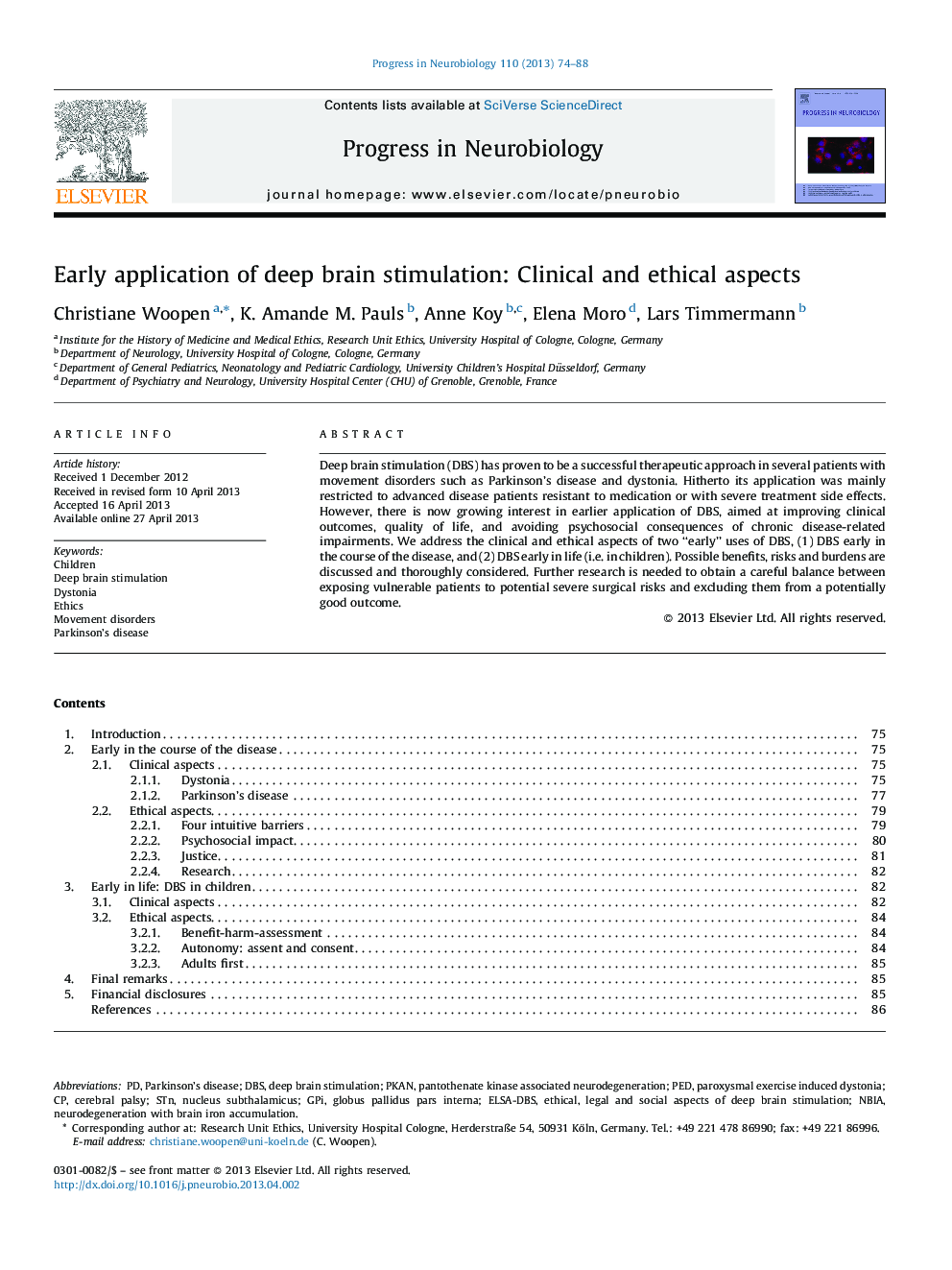| Article ID | Journal | Published Year | Pages | File Type |
|---|---|---|---|---|
| 4353330 | Progress in Neurobiology | 2013 | 15 Pages |
•Early DBS should be performed in sound research context only.•Therapy-resistance is nowadays not an ethically necessary precondition for DBS.•DBS in children can be justified without prior research in adults.•Psychosocial disease-impact has to be considered relevant for DBS-indication.•Patients should participate in therapeutic progress of DBS as a matter of justice.
Deep brain stimulation (DBS) has proven to be a successful therapeutic approach in several patients with movement disorders such as Parkinson's disease and dystonia. Hitherto its application was mainly restricted to advanced disease patients resistant to medication or with severe treatment side effects. However, there is now growing interest in earlier application of DBS, aimed at improving clinical outcomes, quality of life, and avoiding psychosocial consequences of chronic disease-related impairments. We address the clinical and ethical aspects of two “early” uses of DBS, (1) DBS early in the course of the disease, and (2) DBS early in life (i.e. in children). Possible benefits, risks and burdens are discussed and thoroughly considered. Further research is needed to obtain a careful balance between exposing vulnerable patients to potential severe surgical risks and excluding them from a potentially good outcome.
